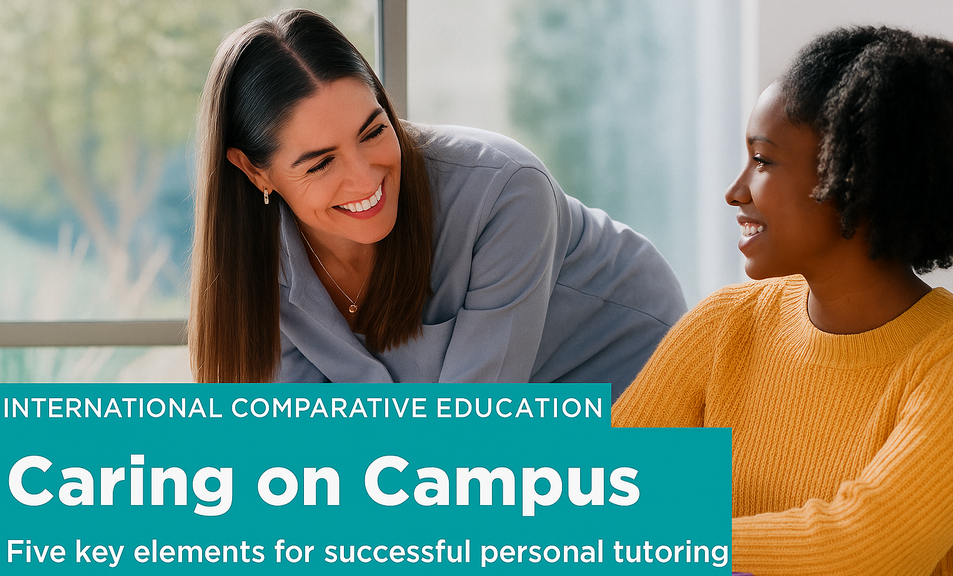Caring on Campus is a LifeRoute initiative that focuses on mental health and wellbeing for all staff and students involved in higher education. In so doing, it is a freely available resource to help enable higher education providers to attain the University Mental Health Charter Award.
It is a collaboration across all stakeholders, and in the Spring 2025 edition of Research Intelligence published by the British Educational Research Association (BERA) we proudly shared an article with Anita Volkert, Senior Lecturer in Occupational Therapy, Glasgow Caledonian University on how quality personal tutoring using a student-centred, values-based approach can transform everyone’s sense of wellbeing.
The full article can be read via this link https://www.bera.ac.uk/publication/spring-2025 If you are not a BERA subscriber, get in touch with LifeRoute or Caring on Campus to receive an email with it in pdf format.
Here, we share the essence of the article…
What makes personal tutoring important? With it being conducted in smaller class sizes, it has the capacity to develop:
– Inclusivity & equity
– Ethical responsibility
– Individualism & the collective
– Emotional & social support
– Development of soft skills
– Holistic development
All of which the tutor consistently and constantly demonstrates by being an example, as well as through other forms of guidance.
Within the Caring on Campus collective we simplify a values-based approach to five core needs as key elements always to be present: to feel understood, respected, valued, safe, and to have caring connections. Note how all are feelings-based: it is this that will define the ability of the student to learn.
These values in the form of needs have to be inculcated as much as learned and do not spring into place overnight. They can also prove to be ‘slippery’ in that a single word or incident can bring everything back to a ‘ground zero’ point in relationships. The importance of the tutor as the enduring role model is therefore crucial.
Our article offers these fundamental areas as a starting point:
– The creation of the right atmosphere that is felt by everyone as soon as they enter the room
– How the tutor always ‘shows up’ and the presence they create
– Agreed ‘rules’ of engagement
This all requires a deep-rooted motivation from the tutor which is evidenced by them being committed to doing their own ‘inner work’ up front. It is only when the tutor is first fluently ‘at home’ with how they harness their own values with proficiency that they can be a role model for others.
However, the rewards are as great as the efforts required, as this quality of learning will remain long after any of today’s facts and methods become obsolete.

